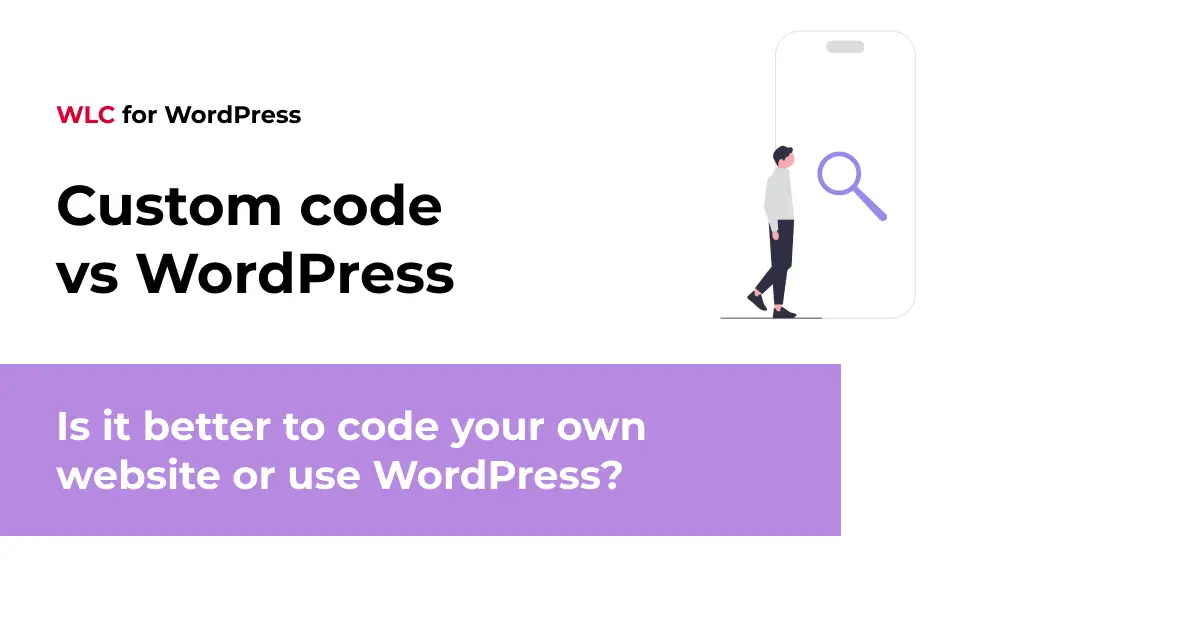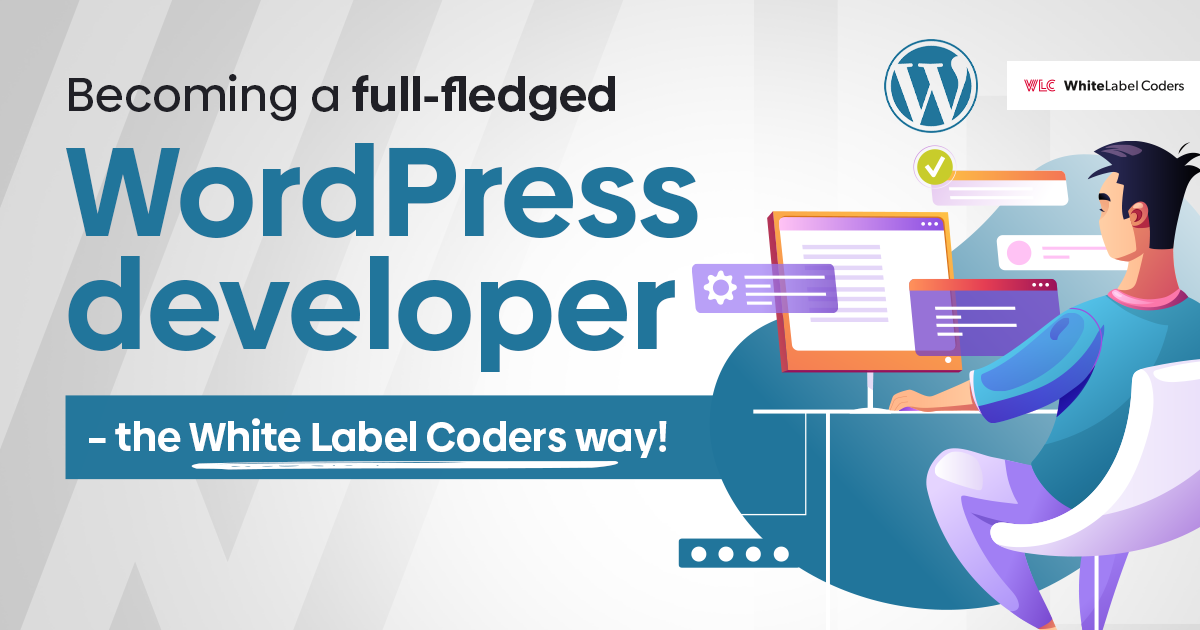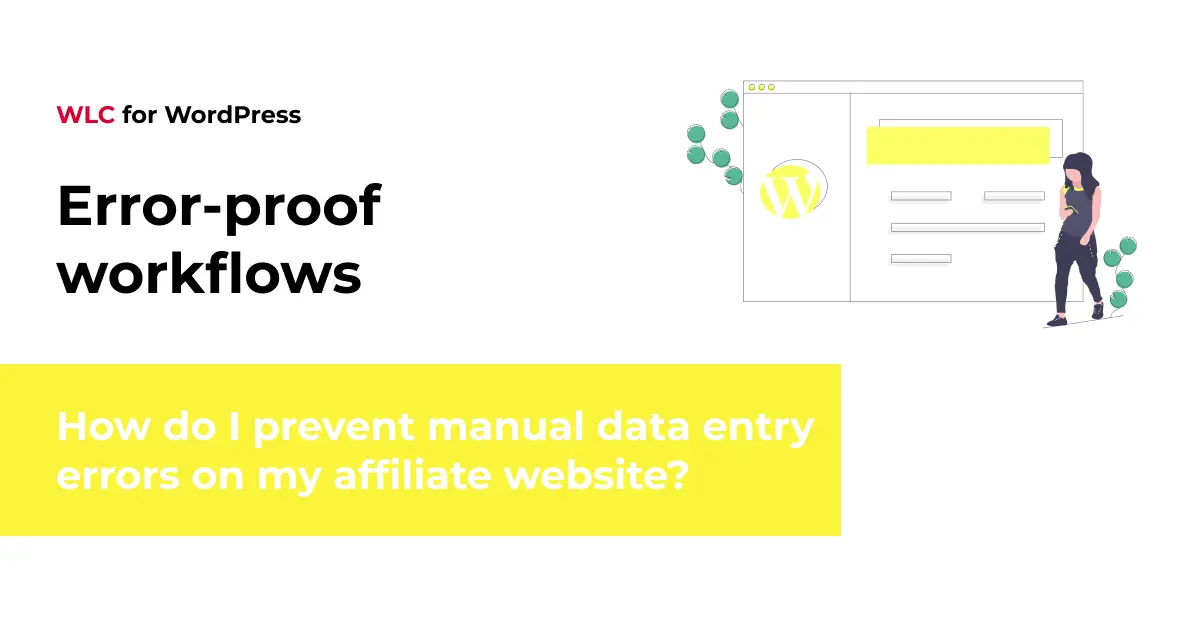Category: WordPress
Is it better to code your own website or use WordPress?

Understanding the website development dilemma: Custom code vs WordPress
When embarking on a website development project, businesses often face a critical decision that will impact their digital presence for years to come: should they invest in custom-coded solutions or leverage a content management system like WordPress?
This fundamental choice influences everything from development timelines and budgets to ongoing maintenance requirements and future scalability. The decision isn’t simply about technical preferences—it’s about aligning your development approach with your business strategy.
This decision is particularly relevant for B2B companies in sectors like e-commerce, e-learning, real estate, or SaaS, where performance, scalability and integration with business systems are crucial.
WordPress powers approximately 43% of all websites on the internet, making it the world’s most popular content management system. Its widespread adoption stems from its versatility and extensive ecosystem of themes and plugins. However, this doesn’t automatically make it the right choice for every business.
Custom coding offers unparalleled flexibility and performance optimization but comes with its own set of considerations regarding development resources and maintenance capabilities. As a business, understanding the implications of each approach is essential for making an informed decision that supports your unique objectives.
The complexity of this decision has led many businesses to partner with specialized agencies offering WordPress custom development services that bridge the gap between these approaches, providing tailored solutions within the WordPress ecosystem.
What are the key differences between custom coding and WordPress?
The fundamental distinction between custom coding and WordPress lies in their approach to website development. Custom coding involves building a website entirely from scratch using programming languages like HTML, CSS, JavaScript, and PHP, giving developers complete control over every aspect of the website’s functionality and appearance.
WordPress, on the other hand, provides a pre-built framework with a user-friendly interface that allows for website creation and management without extensive coding knowledge. This ready-to-use infrastructure significantly reduces development time but operates within certain structural parameters.
From a flexibility perspective, custom-coded websites offer unlimited possibilities with no restrictions on design, functionality, or features. Developers can create precisely what’s needed without compromising on vision or performance. WordPress offers considerable flexibility through its extensive theme and plugin ecosystem but ultimately operates within the constraints of its core architecture.
The learning curve presents another significant difference. Custom coding requires proficiency in multiple programming languages and development practices, representing a substantial skill investment. WordPress allows users with minimal technical background to create and manage websites effectively, though advanced customization still requires some technical expertise.
Development approach also differs substantially. Custom coding follows a highly structured development process from requirements gathering through to deployment, often using frameworks like React or Angular. WordPress development typically involves selecting and customizing themes, installing relevant plugins, and configuring the system to meet specific requirements, which can be enhanced through custom WordPress website development services.
How do development costs compare between custom coding and WordPress?
The financial implications of choosing between custom coding and WordPress extend beyond initial development to include long-term maintenance and scalability costs. Understanding this complete financial picture is crucial for making an informed decision.
Custom-coded websites typically require significantly higher initial investment, with projects starting from £10,000 and potentially reaching six figures for complex applications. This higher cost reflects the bespoke nature of the work, requiring specialized developers and longer development timelines. The value proposition comes from having a solution precisely tailored to your specific requirements without compromise.
WordPress considerably reduces upfront development costs, with most projects ranging from £3,000 to £15,000 depending on complexity and customization needs. This cost-efficiency stems from leveraging existing frameworks, themes, and plugins rather than building everything from scratch.
Ongoing maintenance presents a different cost structure. Custom-coded websites typically incur higher maintenance costs as updates, security patches, and functionality changes require specialized developer intervention. WordPress offers a more predictable maintenance model with regular core updates and plugin management, though custom functionality may still require developer assistance.
For small to medium businesses with standard website requirements, WordPress often represents the most cost-effective approach, providing substantial functionality at a fraction of custom development costs. Larger enterprises with specific requirements and available resources may find the long-term benefits of custom development outweigh the higher initial investment.
Many businesses find the optimal solution in specialized WordPress custom development services that deliver tailored functionality within the WordPress ecosystem, balancing cost-efficiency with customization needs.
What level of customization can you achieve with WordPress vs custom coding?
Customization capabilities represent one of the most significant factors in the decision between WordPress and custom coding. While custom coding naturally offers unlimited customization potential, WordPress’s customization capabilities are far more extensive than many realize.
With custom coding, developers work with a blank canvas, free to implement any functionality, user experience, or design element required. This approach allows for highly specialized features, unique user interfaces, and optimized performance without any pre-existing constraints. The only limitations are technical feasibility, budget, and timeline.
WordPress offers remarkable customization through several avenues. The platform supports thousands of themes that can be further customized through child themes, preserving upgradability while allowing for extensive design modifications. The plugin ecosystem provides pre-built functionality that can be extended or modified, and for truly unique requirements, custom plugin development offers a pathway to implement specific features.
Theme customization in WordPress ranges from simple style adjustments to comprehensive restructuring through page builders like Elementor or custom theme development. For functionality, WordPress’s hook system allows developers to modify core behaviors without altering the platform itself, ensuring compatibility with future updates.
The most effective approach often involves leveraging WordPress’s core strengths while extending the platform through custom development where needed. This hybrid approach, often facilitated through specialized WordPress development agencies, provides the optimal balance of efficiency and customization.
For businesses requiring industry-specific functionality such as e-learning systems, multi-vendor marketplaces, or subscription-based services, experienced WordPress developers can create tailored solutions that maintain the manageable infrastructure of WordPress while delivering highly specialized features.
How does maintenance differ between WordPress and custom-coded websites?
The long-term maintenance requirements of a website significantly impact its total cost of ownership and operational efficiency. WordPress and custom-coded websites present distinctly different maintenance models that businesses should carefully consider.
WordPress operates on a regular update cycle, with core platform updates released periodically to enhance features, fix bugs, and address security vulnerabilities. These updates are typically straightforward to implement through the dashboard, requiring minimal technical expertise. Similarly, themes and plugins receive regular updates managed through the same interface.
Custom-coded websites lack this standardized update mechanism. Each maintenance task—from security patches to feature enhancements—requires developer intervention, often involving code review, modification, testing, and deployment. This process is typically more time-consuming and resource-intensive than WordPress maintenance.
Security considerations also differ significantly. WordPress’s popularity makes it a frequent target for security exploits, but its large community rapidly identifies and addresses vulnerabilities. Regular updates, security plugins, and following best practices provide robust protection. Custom-coded websites aren’t immune to security concerns and require diligent security practices, though they may present a smaller target profile.
Technical support accessibility represents another key difference. WordPress’s extensive community means solutions to common problems are readily available through forums, documentation, and tutorials. Custom-coded websites rely on the original developers or those familiar with the specific codebase, potentially creating dependency issues if the original development team becomes unavailable.
For businesses with limited technical resources, WordPress typically offers a more manageable maintenance model with predictable processes and wider support availability. Organizations with dedicated development teams may find custom-coded solutions more maintainable in-house, giving them direct control over all aspects of the website’s evolution. For reliable ongoing support, many businesses opt to choose White Label Coders for website maintenance. At White Label Coders, we offer structured maintenance plans for both WordPress and custom-built websites, including proactive updates, security audits, and performance monitoring. This ensures your platform remains secure, fast and scalable over time.
Making the right choice: When to choose custom coding vs WordPress
Determining the optimal approach for your website development requires careful consideration of your specific business context, requirements, and resources. Neither WordPress nor custom coding represents an inherently superior choice—each excels in different scenarios.
WordPress typically proves ideal for:
- Small to medium-sized businesses with standard website requirements
- Content-driven websites requiring frequent updates by non-technical staff
- Projects with limited budgets and tight timeframes
- Businesses seeking a balance of functionality and manageable maintenance
- E-commerce operations that align with WooCommerce’s capabilities
Custom coding generally better serves:
- Highly specialized applications with unique functional requirements
- Projects where performance optimization is absolutely critical
- Businesses with specific security or compliance requirements
- Applications requiring deep integration with proprietary systems
- Projects with substantial budgets and longer development timelines
Many businesses discover that the optimal solution lies somewhere between these approaches. Modern WordPress development has evolved to incorporate custom development practices within the WordPress ecosystem, providing the benefits of a standardized content management system alongside tailored functionality.
When evaluating your options, consider your immediate needs alongside your long-term digital strategy. The right solution should not only address current requirements but provide a foundation for future growth and evolution.
Regardless of which path you choose, partnering with experienced developers who understand both approaches ensures your website will effectively serve your business objectives while providing a positive user experience for your visitors. Implementing the WordPress development workflow best practices can significantly impact the success of your project. The right development partner can help navigate this decision process, providing insights into the implications of each approach for your specific business context.
Not sure which approach fits your business best? Let’s talk. At White Label Coders, we help companies assess their long-term digital needs and choose the right development strategy—whether that means building from scratch or creating a custom WordPress solution. Get in touch to schedule a consultation.






